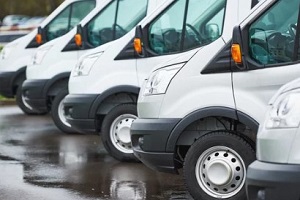 Individuals and businesses rely on insurance to protect against unforeseen events that could result in catastrophic losses. Property and casualty insurance comprise a large percentage of the U.S. insurance market, consisting of two main types of policies: commercial lines for businesses and personal lines for individuals.
Individuals and businesses rely on insurance to protect against unforeseen events that could result in catastrophic losses. Property and casualty insurance comprise a large percentage of the U.S. insurance market, consisting of two main types of policies: commercial lines for businesses and personal lines for individuals.
Understanding the similarities and differences between commercial and personal lines insurance can help ensure that policyholders are fairly compensated for any losses or damage incurred.
Commercial Lines Insurance: What Is It and How It Works
Commercial lines insurance consists of property and casualty insurance products designed for use by businesses. This type of insurance enables businesses to continue operations despite the risks they may face. It also protects businesses against potential losses they could otherwise not afford to cover.
Many different types of policies fall under commercial lines insurance, such as:
- Workers’ compensation insurance
- Ocean marine insurance
- Federal flood insurance
- Aircraft insurance
- Medical malpractice insurance
Commercial lines insurance is tailored to each unique business. For example, an architect may require a professional liability insurance policy that protects the business against negligence claims in building planning and design.
Personal Lines Insurance: What Is It and How It Works
Personal lines insurance includes policies that cover individuals against losses that result from property damage, injury, or death. With personal lines insurance, individuals and their families can perform potentially risky actions, such as driving a car or owning a home, without fear of financial ruin if a catastrophe should occur.
There are several common types of personal lines insurance, including:
- Homeowners insurance
- Automobile insurance
- Flood insurance
- Disability insurance
- Life insurance
- Health insurance
- Umbrella insurance
- Earthquake insurance
 Individuals can customize their policy’s coverage and deductibles to achieve an affordable balance between the amount of coverage provided and the cost of deductibles.
Individuals can customize their policy’s coverage and deductibles to achieve an affordable balance between the amount of coverage provided and the cost of deductibles.
The higher the premium, the greater the coverage. While personal lines insurance does not cover every risk an individual may face, it can significantly reduce a policyholder’s liability and the amount they would need to pay out of pocket.
Differences Between Commercial and Personal Lines Insurance
The biggest difference between commercial and personal lines of insurance deals with who benefits from the insurance. Personal lines insurance protects individuals against financial loss in the event of an unexpected injury, illness, or property loss. Reducing a policyholder’s liability through tailored insurance policies can provide peace of mind.
On the other hand, commercial lines insurance is tailored to meet businesses’ unique needs. Customized policies can help mitigate many companies’ risks, thus protecting their reputation, revenue, and resources. This type of insurance also plays a key role in the economy by helping to drive growth.
Other differences between commercial and personal lines insurance include:
1. Name of Insured
Commercial and personal lines insurance state the name of the insured. On a personal policy, the insured’s name is usually either an individual or a married couple. However, commercial policies differ based on the type of entity.
The name of the insured on commercial insurance could be sole proprietor, partnership, limited liability corporation, or other entity. In some instances, there are multiple names listed on a policy.
2. Property and Assets
Another area where commercial and personal lines insurance differ is property and assets. Individuals seeking personal lines insurance look for coverage to protect their homes and personal belongings.
In comparison, commercial consumers often have significantly more money invested in their property and assets. Content coverage for businesses may include costly equipment, furniture, inventory, supplies, and the property of the business’ customers.
3. Liability Exposures
Liability exposures also differ significantly between individuals and businesses. Commercial consumers generally face much broader liability concerns than average personal lines consumers.
These liability concerns relate to many business areas, such as operations, products, and premises. When selecting policies to protect a business, policyholders must consider what liabilities pose the greatest threat to the business.
4. Automobile Coverage
 Automobiles are used by individuals and businesses, but for different reasons. When a car, truck, van, or other vehicle is used for business purposes, having adequate commercial coverage is essential.
Automobiles are used by individuals and businesses, but for different reasons. When a car, truck, van, or other vehicle is used for business purposes, having adequate commercial coverage is essential.
Businesses may have multiple different drivers behind the wheel. They may require special driver’s licenses depending on the size and type of vehicle being used to perform services or haul goods. Commercial auto insurance policies tend to have higher limits, which offers businesses more coverage in the event of an accident.
Reach Out to Atlas About Commercial and Personal Lines Insurance
Insurance serves as an essential safety net that protects policyholders from unforeseen events. This financial tool is used by individuals and businesses who want to avoid financial ruin caused by common risks, such as injury, illness, and property damage. To learn more about commercial or personal lines insurance, speak with a knowledgeable agent at Atlas Insurance Agency.
